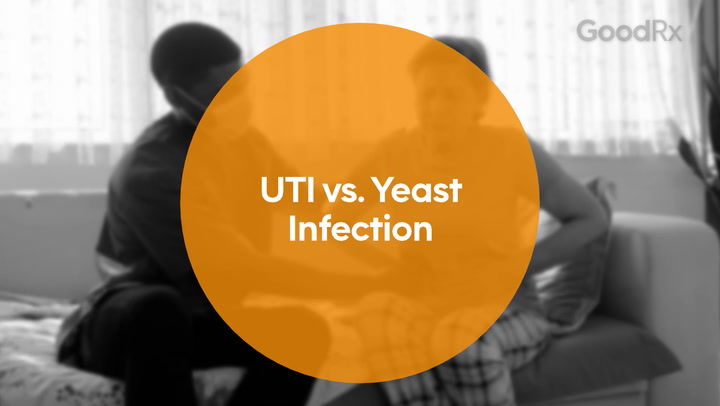
How to Know if You Have a Complicated UTI, and Why It Matters
Key takeaways:
Most urinary tract infections (UTIs) are considered uncomplicated. This means they occur in the lower urinary tract (bladder and urethra) in healthy, nonpregnant females.
UTIs are considered “complicated” when they’re at higher risk of complications. This can happen if you have something like a kidney stone, a weakened immune system, or the infection is caused by a less common bacteria.
Complicated UTIs are often treated differently than uncomplicated UTIs. They often need different antibiotic treatment, and sometimes require hospitalization.

A urinary tract infection (UTI), which causes pain and discomfort, is an infection you want to go away quickly.
Often the treatment for a UTI is straightforward, and it goes away with a simple course of antibiotics. But some UTIs are considered “complicated” and require a different kind of treatment. So it helps to know if you have an uncomplicated or complicated UTI, and what that means for getting the most effective treatment.
What is the difference between a complicated and uncomplicated UTI?
Most UTIs are uncomplicated. But healthcare providers will sometimes diagnose a UTI as “complicated.” This helps identify infections that may be harder to treat, or have a higher risk of a complication. A complicated UTI is diagnosed by factors related to the person, as well as features of the infection itself.
Search and compare options
Uncomplicated UTI
An uncomplicated UTI is sometimes called a simple UTI. For a UTI to be uncomplicated, it needs to occur in a female who does NOT have:
A fever
An active pregnancy
A condition that weakens their immune system
A catheter in place
But that’s not all. An uncomplicated UTI must also be limited to the lower part of the urinary tract. The urinary tract is divided into:
The upper urinary tract: This includes the kidneys and the ureters — the tube that carries urine from the kidneys to the bladder.
The lower urinary tract: This includes the bladder and the urethra — the tube that allows you to empty your bladder.
And finally, an uncomplicated UTI is caused by a common bacteria that’s known to cause UTIs. Most commonly, these are bacteria that are naturally present in the digestive system and around the genital area.
Complicated UTI
A UTI is complicated if it happens to someone who is:
Male
Pregnant
Immunocompromised, or when the immune system’s function is reduced
Using an indwelling catheter, a tube inserted into the bladder to drain urine
A complicated UTI also occurs when the infection:
Causes a fever
Involves the kidneys (also called pyelonephritis)
Leads to sepsis, which means the infection is serious enough to cause a large immune response
Is caused by a kidney stone
Is caused by an unusual bacteria
The majority of UTIs are caused by a bacteria called Escherichia coli, or E. coli for short. About 80% of uncomplicated UTIs are caused by E. coli. Examples of other bacteria that cause UTIs include:
Staphylococcus saprophyticus
Klebsiella
Proteus
Enterococci
These and a wide variety of other bacteria can cause complicated UTIs. But complicated UTIs are more likely to be caused by drug-resistant bacteria.
What is the difference in symptoms of a complicated vs. uncomplicated UTI?
Typical symptoms of an uncomplicated UTI include:
Pain or burning when urinating
Blood in the urine (also called hematuria)
Cloudy or smelly urine
Frequent and urgent need to urinate
Pain in the pelvic area
A complicated UTI will often cause the above symptoms. But any of these additional symptoms could be a sign of a complicated UTI:
Pain in the lower back or side
Fever and/or chills
Joint or muscle aches
Nausea and vomiting
So if you have any of these symptoms, it’s a good idea to contact your healthcare provider to make sure you’re on the right treatment.
What is the difference in treatment of a complicated UTI vs. uncomplicated UTI?
An uncomplicated UTI is usually treated with antibiotics to fight the bacterial infection. Common antibiotics include:
Trimethoprim/sulfamethoxazole (Bactrim/Septra)
Nitrofurantoin (Macrobid)
Cephalosporins, such as cefdinir (Omnicef) or cephalexin (Keflex)
Amoxicillin/potassium clavulanate (Augmentin)
The best antibiotic for you depends on which bacteria are most common in your community, any medication allergies, and details from any prior UTIs.
Treatment with antibiotics is the standard of care for UTIs. Antibiotics tend to help resolve symptoms faster, and lowers the chances of developing a complicated UTI, like pyelonephritis.
But for some people, uncomplicated UTI symptoms can resolve without antibiotics. Some studies suggest that if you’re low-risk, it might be safe to wait a few days before starting antibiotics to see if your immune system clears the infection on its own. But experts still don’t don’t have clear guidelines to say when this would be recommended.
A person with a complicated UTI, however, always needs to be treated with antibiotics. They often need stronger antibiotics as well. Examples include:
Ciprofloxacin (Cipro) or levofloxacin (Levaquin)
Ceftriaxone, which can be given as an injection into the muscle
Can a complicated UTI be treated at home?
Sometimes a complicated UTI can be treated with antibiotics that are taken by mouth, and you can be treated at home. Other times, treatment for a complicated UTI may need intravenous (IV) antibiotics. When this is the case, this usually means that a person needs to be hospitalized for treatment and monitoring. There are many different types of antibiotics that can be used for severe infections in a hospital setting.
The bottom line
Most urinary tract infections (UTIs) will be uncomplicated and easily treated with antibiotics. But it’s important to recognize the signs and symptoms of a complicated UTI, since they have a higher risk of treatment failure and complications.
If you’re having symptoms of a UTI and develop fever or chills, back pain, or vomiting, contact your healthcare provider. They can help make sure you’re getting the right treatment for the infection.
Why trust our experts?


References
Belyayeva, M., et al. (2022). Acute pyelonephritis. StatPearls.
Centers for Disease Control and Prevention. (2015). Catheter-associated urinary tract infections (CAUTI).
Jancel, T., et al. (2002). Management of uncomplicated urinary tract infections. The Western Journal of Medicine.
Mehnert-Kay, S. A. (2005). Diagnosis and management of uncomplicated urinary tract infections. American Family Physician.
Midby, J. S., et al. (2022). Delayed and non-antibiotic therapy for urinary tract infections: A literature review. Journal of Pharmacy Practice.
Sabih, A., et al. (2023). Complicated urinary tract infections. StatPearls.

























